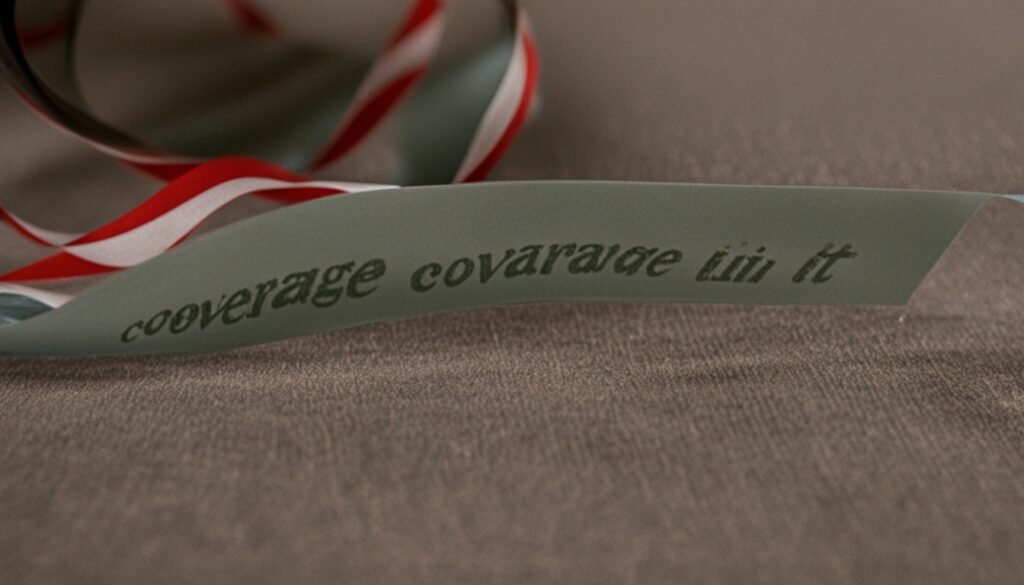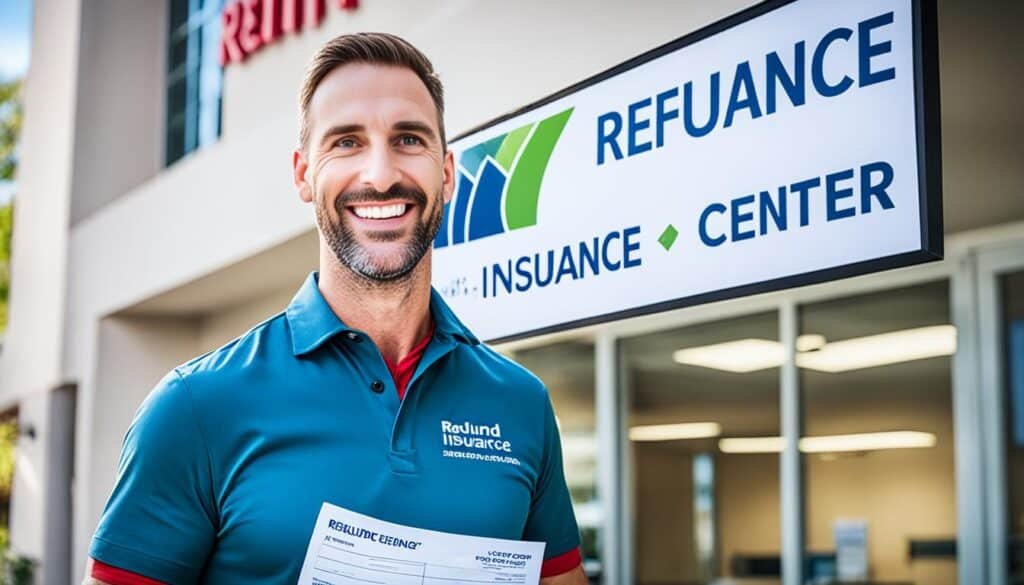Do you think you can get your insurance premium money back? The answer isn’t simple. It depends on what type of insurance you have, how you pay for it, and why you want to cancel it. We’ll talk about when you might get a refund and how to ask for one.
Key Takeaways
- You may be eligible for an insurance premium refund if you cancel your policy before the end of the term, switch insurance providers, move locations, or sell an insured asset.
- The refund amount will depend on your payment schedule (upfront vs. installment) and any cancellation fees or penalties charged by your insurer.
- Contacting your insurance provider and understanding their refund policies is crucial to ensure a smooth process.
- Timing your policy cancellation is important to avoid gaps in coverage and ensure a seamless transition to a new insurance plan.
- Understand your rights as a policyholder and work closely with your insurance provider to maximize your refund opportunities.
What Is an Insurance Premium?
An insurance premium is what you pay to keep your insurance. You can pay it all at once or in smaller, regular payments. The cost depends on your insurance type, how much risk you have, and the coverage you need.
Definition and Explanation
The insurance premium is your policy’s cost. It’s the fee you give the insurance company for keeping you safe. This cost can change based on your insurance type, like life insurance or car insurance.
When setting your premium, they look at your age, health, driving history, your item’s worth. If you’re more at risk, your cost might go up. Also, the more coverage you want, the higher your premium will likely be.
Types of Insurance Premiums
There are various insurance premiums you might pay:
- Life insurance premium: What you pay to keep your life insurance active. It looks after your family financially if something happens to you.
- Car insurance premium: The cost to cover your auto insurance, from damages to any legal issues while driving.
- Health insurance premium: The fee for your health insurance, making medical bills lower and healthcare more available.
No matter what kind of insurance, the premium is key. It keeps covering you for any surprises or risks.
Circumstances for Getting an Insurance Refund

If you’re changing insurance companies, moving to a new place, or selling something you insured, a refund might happen. This happens when there’s a part of the premium not used. Knowing about these situations can help you save money and avoid surprises.
Switching Insurance Providers
Switching insurers might get you a refund. This commonly happens if your policy is still active. Make sure to check your policy and tell your old insurer you’re leaving in time to avoid extra charges.
Moving Locations
Moving to a new home means you might get some money back. If the new place is less risky or offers better insurance rates, your insurer may give you a refund. Even if it’s because you’ve moved to an area with a different insurer.
Selling an Insured Asset
Selling something like a car or home means you don’t need that insurance anymore. Your insurer will likely give you back some of the money you paid for that coverage.
Sorting out insurance refunds can seem hard, but knowing a few things can lead to savings. Stay on top of your options. This way, you might get money back, change insurers, or adjust your coverage without much trouble.
Canceling Your Insurance Policy
Canceling insurance can be hard, and your refund varies on how you paid. Did you pay all at once or in parts?
Upfront vs. Installment Premium Payments
If you paid full price at the start and then cancel, you might get more money back. But if you paid every month or every three months, your refund could be less.
Cancellation Fees and Penalties
Also, your insurance might ask for a cancellation fee or cancellation penalties. This is to cover their costs when you cancel. How much they take could change based on your policy and company.
Always look through your insurance papers. Knowing the terms can help you guess your refund and any fees.
“The refund you receive when canceling your insurance policy can be impacted by whether you paid your premium upfront or in installments, as well as any cancellation fees or penalties charged by your insurer.”
Knowing these factors helps you decide on canceling your insurance. You can work to get the biggest refund back possible.
Modifying Your Insurance Coverage

Changing your insurance policy can help you save money. You might get a refund if you lower your coverage. This can reduce the amount you pay every month.
Reducing Coverage Limits
Lowering your coverage limits is one way to cut costs. It means your insurance pays less if you make a claim. Although you might pay more if something happens, it can lower your premium. This might get you a refund from your insurance company.
Removing Vehicles or Drivers
If you no longer need to cover a car or driver, you can take them off your policy. Maybe you sold a vehicle or someone moved out. This change could lower your premium. It might even get you some money back.
Remember, any refunds might not come as a check. They might go back as credit on your account. Talk to your insurer to get all the details on how and when you might get a refund.
“Making changes to your insurance policy, such as reducing coverage limits or removing vehicles or drivers, can be a strategic way to manage your costs and potentially qualify for an insurance refund.”
Insurance Provider Cancels Your Policy
If your insurance provider cancels your policy, you might get a refund. It depends on why they canceled it. Knowing about policy cancellation and getting your insurance refund is important. It helps keep your money safe.
Not paying your premiums can cause your policy to be canceled. In this case, you probably won’t get a refund. Insurers can stop your coverage if payments are missed. But, if they cancel for other reasons like a driving record change or a DUI, you could get a refund for the time you haven’t used.
- Policy cancellation due to non-payment typically does not result in a refund.
- Cancellations related to changes in your driving record or a DUI conviction may entitle you to a refund for the unused portion of your premium.
Always check your insurance policy details. Understand why your coverage might end. Talking to your insurer and knowing your rights can make it easier if your policy is canceled.
“Insurance providers have the right to cancel a policy for valid reasons, but consumers should be aware of their entitlement to a refund in certain circumstances.”
By being informed and acting wisely, you can handle policy cancellation and insurance refunds. This protects your money and makes switching to new coverage smooth.
The Refund Process

Navigating the insurance refund process is key. It’s crucial to know the steps involved. You might need a refund when changing insurance, moving, or selling something that was insured. In such cases, contacting your insurance company is a must. You have to follow their specific refund steps.
Contacting Your Insurance Provider
First, get in touch with your insurance provider. You’ll usually have to give them your policy number and the reason for ending the policy. You may also need to show some documents. After this, your insurance company will check your request. They’ll then figure out how much to refund you.
Refund Payment Methods
When your refund request gets the thumbs up, you’ll get your money back. This will happen the same way you paid your premium. It could be a check or a credit on your card. Remember, the time it takes to get your refund can change. So, stay in touch with your insurance company to make sure things move along.
Here are the main steps to follow for an insurance refund:
- Contact your insurance provider and give them your policy number, the reason for ending the policy, and any needed documents.
- Your insurance company will check your request and decide how much to refund you.
- You will get the refund the same way you paid your premium, like a check or credit to your card.
- Keep an eye on how long your refund takes. If needed, check in with your insurance company to speed things up.
By learning about the insurance refund steps and keeping in touch with your provider, the process can go smoothly. This way, you’ll get the refund you are owed.
Insurance Premium Refunds and Your Rights
You, as a consumer, have rights regarding insurance premium refunds. Insurance regulations and state laws guide when you might get a refund. They also set the refund’s timeline and the max fees for canceling a policy. Knowing your rights means you can get the full insurance premium refund you deserve.
One important right is getting a prorated refund if you cancel your policy. This means you pay only for the coverage you used. Everything else should be given back to you. State laws often limit the cancellation fees insurers can charge.
If you switch insurance or move, you could be due a premium refund for the part of the policy you didn’t use. It’s key to check your policy and your state’s insurance regulations. They tell you exactly what you’re entitled to.
If you think your refund is wrong, you can complain to your state’s insurance department. They will look into it. They’ll make sure you get what you’re owed under consumer rights and state laws.
“Knowing your rights as a consumer can help you navigate the insurance refund process and ensure you’re treated fairly.”
Knowing your consumer rights and your state’s insurance regulations helps you protect yourself. You can secure the insurance premium refunds you should get. This information lets you stand up for your rights and avoid unfair treatment by insurance companies.
Avoiding Gaps in Coverage
It’s key to cancel an insurance policy at the right time. This prevents gaps in coverage. If you cancel before a new policy starts, you could pay more later. The best practice is to get your new policy ready before canceling the old one.
Also Read: What Does Your Small Business Insurance Policy Leave Unprotected?
Timing Your Policy Cancellation
Cancelling and starting new policies at the same time helps. This way, you stay protected without any breaks. This also keeps you from facing financial risks or higher future rates.
Before you cancel, make sure you know all the terms. Understand any penalties or fees. This makes the switch to a new policy smooth. You won’t lose coverage or face extra charges.
FAQs
Q: Can I get a refund on my insurance premium?
A: It depends on the terms of your policy and the specific circumstances. Some insurers may offer a refund if you cancel your policy before the term is up or if you overpaid your premium.
Q: How do insurance companies calculate insurance premiums?
A: Insurance companies calculate premiums based on several factors such as your age, health, lifestyle, coverage amount, and the type of insurance policy you choose. They also consider the level of risk you pose to them.
Q: What is the difference between a higher premium and a lower premium?
A: A higher premium means you pay more for your insurance coverage, while a lower premium means you pay less. The premium amount is the cost of your insurance policy that you’ll pay regularly.
Q: How can I lower my insurance premium?
A: You can lower your insurance premium by choosing a higher deductible, maintaining a good credit score, bundling your policies, and driving safely (for auto insurance). You can also shop around to compare quotes from different insurers.
Q: What is the cost of life insurance?
A: The cost of life insurance varies depending on factors such as your age, health, coverage amount, and the type of policy you choose. You can get a quote from insurance companies to determine the cost.
Q: What is a beneficiary in terms of insurance?
A: A beneficiary is the person who receives the death benefit from your life insurance policy in the event of your passing. You can designate one or multiple beneficiaries when you purchase a policy.
Q: How do insurers use an actuary to determine insurance premiums?
A: Insurers use actuaries to assess risk and calculate insurance premiums based on statistical data and probability. Actuaries help determine the likelihood of claims being made and the cost of those claims.
Q: What happens if I miss the due date for my insurance premium?
A: If you miss the due date for your insurance premium, your policy may lapse, meaning you lose coverage. Some insurers offer a grace period during which you can still pay the premium without penalty.
Source Links
- https://www.progressive.com/answers/refund-on-car-insurance/
- https://www.creditkarma.com/auto/i/car-insurance-refund
- https://obamawhitehouse.archives.gov/blog/2013/07/18/refund-your-health-insurance-company-thank-affordable-care-act

